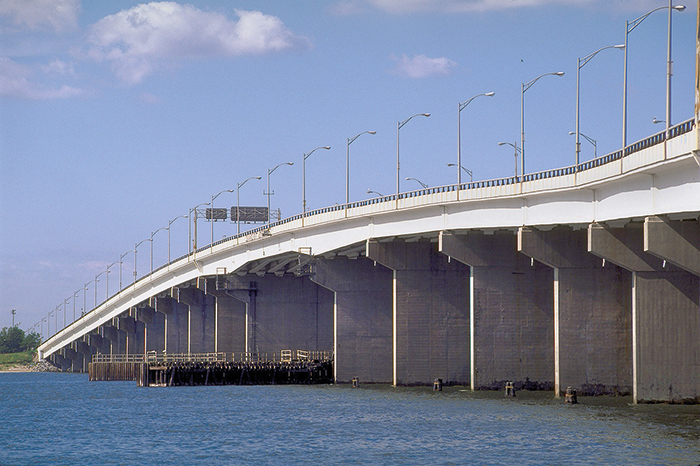File Photo
The toll on the Cross Bay Veterans Memorial Bridge will increase to $2.45 from $2.29.
By Michael V. Cusenza
The Metropolitan Transportation Authority Board on Thursday approved a toll increase on MTA Bridges and Tunnels while preserving the resident discount programs.
The hike, which will raise current toll rates in April by an average of 7.08 percent to yield a 6 percent increase in revenue, according to the MTA.
Tolls will jump to $6.55 from $6.12 for E-ZPass users on: the Whitestone Bridge, RFK-Triboro Bridge, Throgs Necks and Verrazzano bridges and the Brooklyn-Battery and Queens-Midtown tunnels. Drivers without E-ZPass will be charged $10.17, up from its current rate of $9.50.
The toll on the Cross Bay Veterans Memorial Bridge will increase to $2.45 from $2.29. Toll discount programs and rebates for Rockaway and Broad Channel residents using the Cross Bay Bridge are being maintained for those who properly use their NYCSC E-ZPass tags. The Cross Bay Bridge and Marine Parkway Bridge toll for Rockaway and Broad Channel residents will increase to $1.60. The Cross Bay Bridge toll remains fully rebated for Rockaway and Broad Channel residents properly using their NYCSC E-ZPass.
Also on Thursday, the MTA urged Congress to quickly pass the American Rescue Plan, including delivering an additional $8 billion in federal relief for the agency amidst its ongoing financial crisis. The MTA continues to face a cumulative deficit of $8 billion through 2024 and is urgently requesting additional Federal assistance to power the region’s recovery from the pandemic in the years to come. To continue to provide as much subway, bus and commuter rail service as possible to customers, the MTA Board today approved a toll increase on MTA Bridges and Tunnels while preserving the resident discount programs.
As a result of recent modest financial gains, the MTA will avoid the “worst case” service reductions that had been eliminated in 2021 but had been discussed as a possibility for 2022, as well as any immediate associated layoffs. Drastic service reductions remain on the table, however, for 2023 and 2024 without future federal aid to support the remaining $8 billion deficit. This short-term stability was a result of $2.9 billion in deficit financing through the Federal Municipal Liquidity Facility, improved re-estimates in dedicated taxes and fees as well as the receipt of $4 billion in Federal aid through the Coronavirus Response and Relief Supplemental Appropriations Act of 2021 that was passed by Congress in December.
“The federal funding provided by Congress in December has allowed the MTA to avoid the worst case cuts not just in 2021 but also 2022,” said MTA Chairman and CEO Patrick Foye. “But the pandemic is projected to continue to wreak havoc on the MTA’s finances for the next four years as ridership gradually rebuilds. We continue to urgently request $8 billion in additional federal aid as part of the American Rescue Plan so we can serve as the economic engine leading New York’s recovery from this devastating pandemic.”

